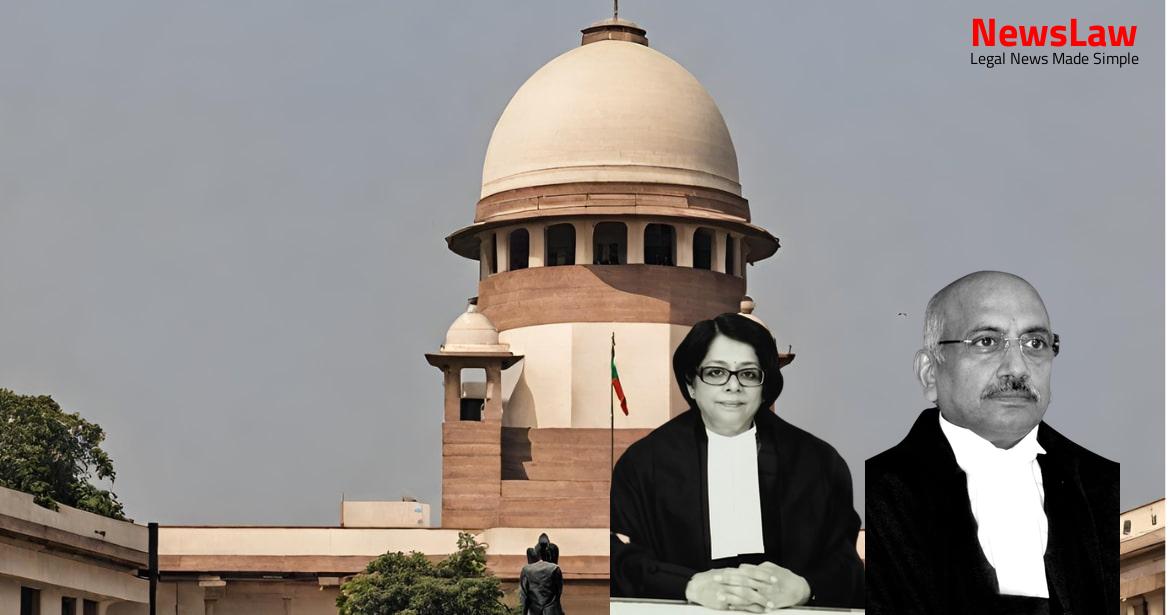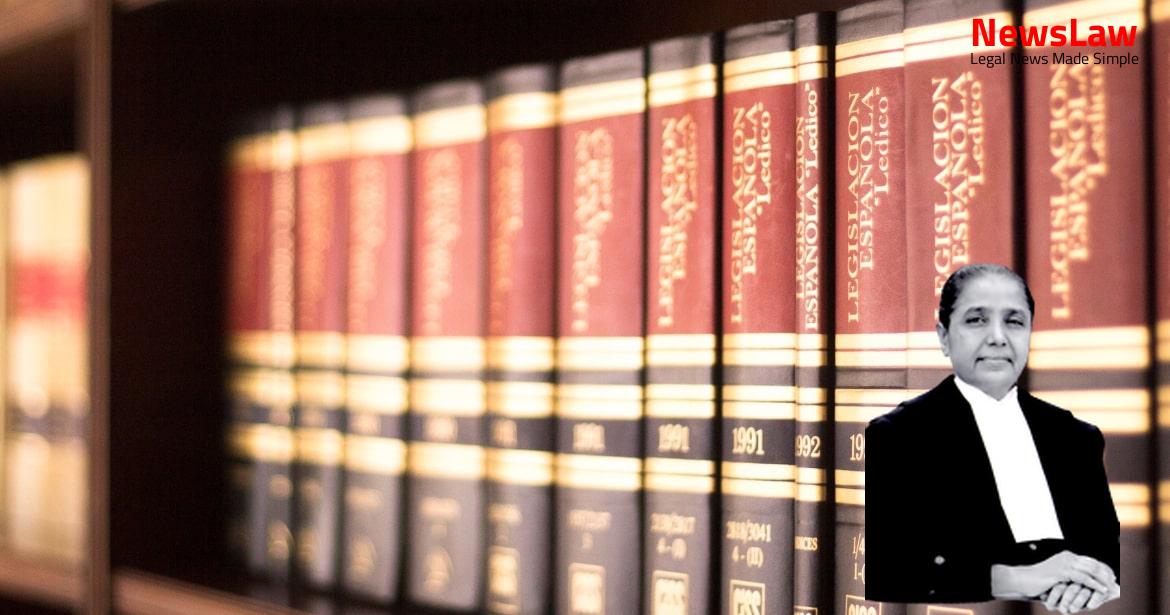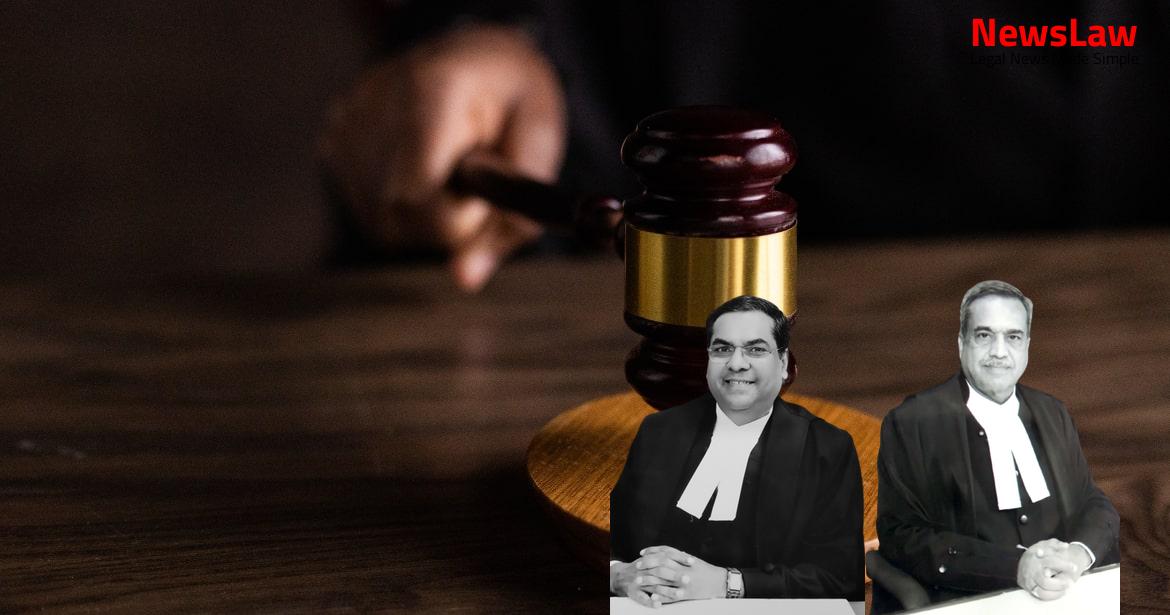The legal case revolves around the need for a structured scheme to ensure proper administration of a public charitable trust. The court’s legal analysis delves into the intricacies of trust management, highlighting the significance of upholding the trust’s charitable objectives. Join us as we explore the court’s insights on governance and legal frameworks in charitable institutions.
Facts
- The Trust was established with the aim of providing medical aid to needy citizens.
- A hospital was constructed as a charitable institution in 1987-88.
- The administration of the Trust and hospital is under scrutiny due to lack of proper meetings and procedures.
- Allegations of misappropriation of income and conversion of the hospital into a business venture.
- Need for a scheme to ensure proper administration by qualified doctors and fulfillment of trust objectives.
- Trustees, including family members, appointed for life without democratic processes in place.
- Demand for a scheme to ensure the hospital operates for charity with proper governance.
- The elder son of some trustees is actively involved in the Trust’s affairs.
- Complaints of kickbacks and mismanagement by certain trustees.
- Lack of free medical aid and charity activities as initially intended.
- Calls for court intervention to frame a proper scheme for Trust administration.
- District Court order dated 27.11.2012
- Appellants established a prima facie case
- No necessity to revoke leave already granted
Also Read: Legal Analysis on Arbitration Petition Limitation Period
Issue
- The main issue in this matter is whether the appellants were rightly granted leave under Section 92 of the Code by the Trial Court.
Also Read: Analysis of High Courts’ Jurisdiction and Court Orders Under Article 142
Arguments
- The defendants are accused of mismanagement, misappropriation, and breaching trust.
- The appointment of the 6th defendant as trustee is deemed void and illegal.
- Request for a permanent injunction to restrain the 6th defendant from serving as a Trustee of the trust.
- The appellants seek a proper scheme of administration for the Trust by removing defendants 2 to 6 and appointing new trustees, including medical professionals and members of the public.
- The 8th defendant, the Banker for the Trust, is also implicated as a party due to account operations and withdrawals.
Also Read: Electoral Malpractices in Mayor Election
Analysis
- The Full Bench of the Madras High Court in Appanna v. Narasigna accepted the principle that a suit not brought under Section 92 of the Civil Procedure Code, but to enforce a purely personal right, does not require the involvement of the Advocate-General or public officer.
- The same view was upheld in The Tirumalai-Tirupati Devasthanams Committee v. Udiayar Krishnayya Shanbhagal, where the right to collect moneys was deemed independent of Section 92 requirements.
- The case involved a public trust being run as a private family trust with the necessity of appointing competent trustees to administer it properly.
- The High Court’s judgement emphasized the purpose of Section 92 of the CPC to protect public trusts from harassment and ensure a prima facie case of breach of trust or need for court directions.
- Section 92 of the Code of Civil Procedure outlines provisions for public charities and trusts of a charitable or religious nature.
- To invoke Section 92, three conditions must be met: the trust must be for public charitable or religious purposes, there must be a breach of trust or a need for court direction in trust administration.
- The main purpose of Section 92(1) is to safeguard public trusts from harassment by allowing specific reliefs to be sought, such as removing trustees, appointing new trustees, directing accounts, declaring trust property allocation, authorizing actions on trust property, and settling a scheme.
- Suits under Section 92 are to be filed by the Advocate General or two or more persons with an interest in the trust and with the written consent of the Advocate General.
- Section 92(1) of the Civil Procedure Code provides for cases involving breach of trust in a trust created for public charitable or religious purposes, or where court direction is necessary for trust administration.
- For a Wakf to fall within Section 92, it must be created substantially for a public purpose.
- Three conditions must be met to invoke Section 92: Trust created for public charitable or religious purposes, breach of trust alleged or court direction needed for trust administration, and relief claimed aligning with section’s provisions.
- The amount allocated for public charitable or religious purposes must be significant to warrant Section 92 application.
- Detailed considerations and amendments can be addressed after trial and conclusion of proceedings.
- The establishment of a Chatram through a will directing charitable allocations was upheld as a public trust by the Judicial Committee.
- Legal principles regarding public charitable trusts have been reaffirmed through various court decisions.
Case Title: ASHOK KUMAR GUPTA Vs. M/S SITALAXMI SAHUWALA MEDICAL TRUST (2020 INSC 255)
Case Number: C.A. No.-001917-001917 / 2020



